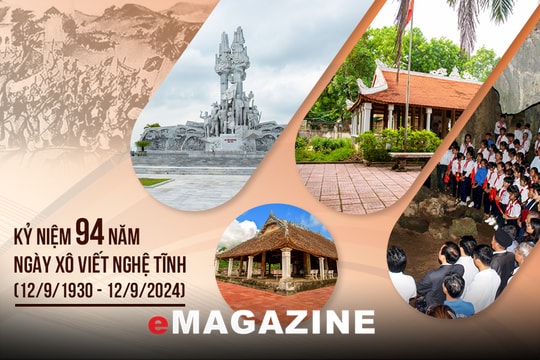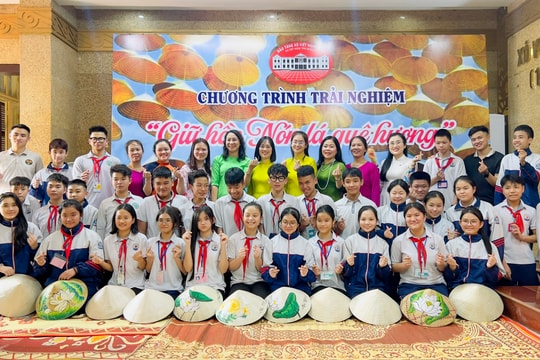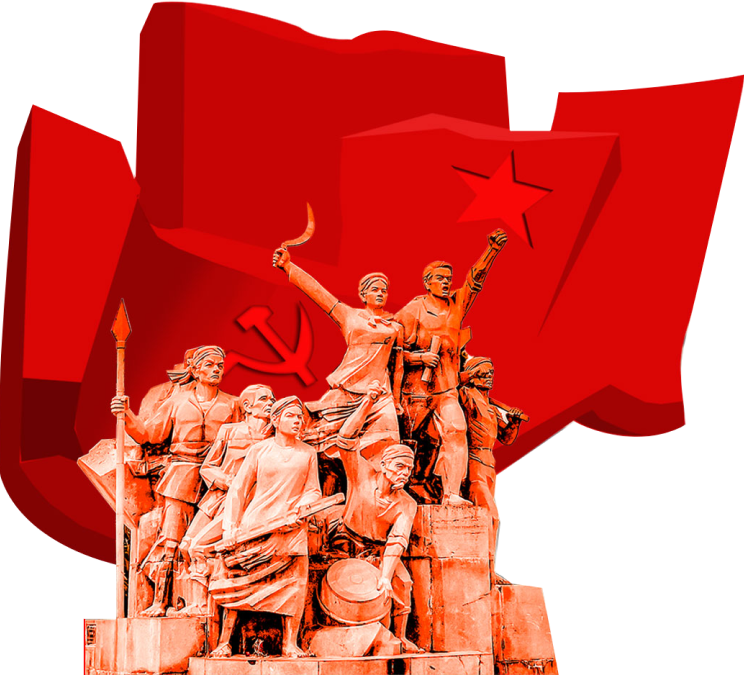Comrade Tran Phu: 'Keep up your fighting spirit!'
Comrade Tran Phu - an outstanding communist soldier, an excellent student of President Ho Chi Minh, the first General Secretary of the Party, devoted his whole life to the country's revolutionary cause.
Comrade Tran Phu was the fourth son of Mr. Tran Van Pho and Mrs. Hoang Thi Cat. His father's hometown was in Tung Anh village, Duc Tho district, Ha Tinh province. His mother's hometown was in Nghi Loc district, Nghe An province. In 1901, Mr. Tran Van Pho was assigned to work as a professor in Tuy An district, Phu Yen province. Here, on May 1, 1904, Tran Phu cried out at birth. When he was just over 4 years old, he lost his father, so Tran Phu soon had a sense of independence, overcoming difficulties to excel in his studies.
In the summer of 1922, after passing the high school entrance exam at the National School in Hue, Tran Phu was appointed to teach at Cao Xuan Duc School in Vinh. Here, Tran Phu trained enthusiastic students, who later followed his patriotic path and became revolutionary veterans in the Nghe Tinh Soviet movement of 1930-1931, such as comrades Nguyen Thi Minh Khai, Nguyen Ngoc Ba, Sieu Hai...
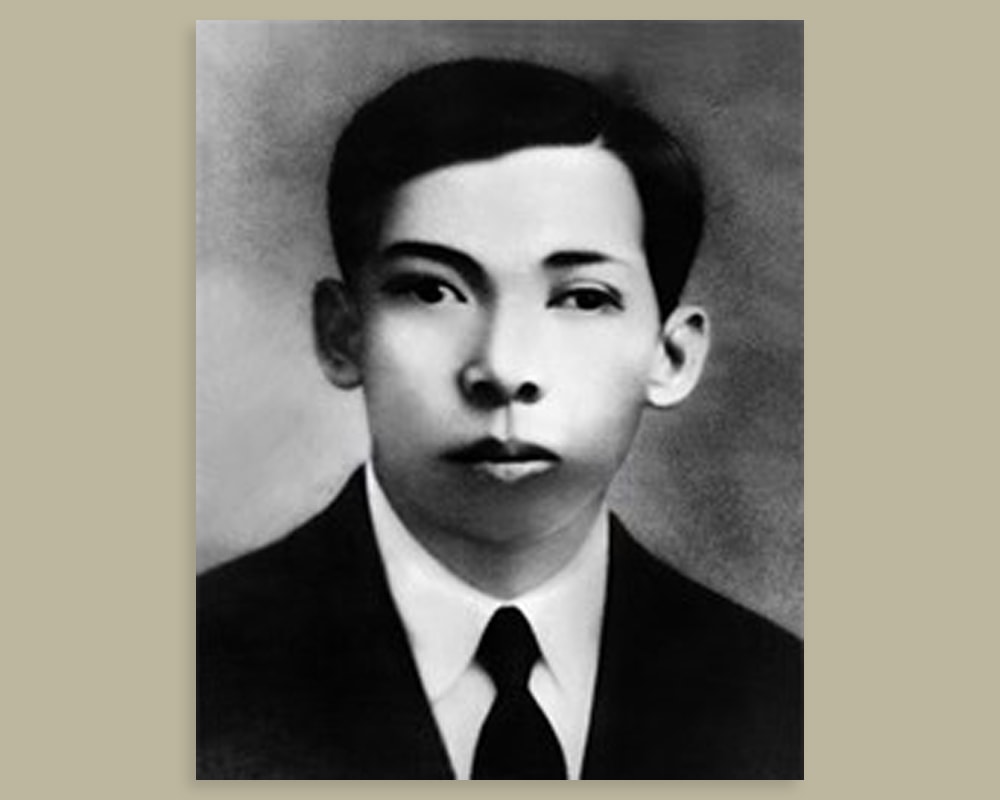
On July 14, 1925, teacher Tran Phu and intellectuals such as Le Huan, Tu Kien, Ton Quang Phiet, Tran Mong Bach... gathered at Con Meo Mountain - Ben Thuy to found the Phuc Viet Association. To launch the people's struggle movement, the Phuc Viet Association printed thousands of leaflets in amethyst and distributed them throughout the districts, demanding amnesty for Phan Boi Chau, in order to expand the people's fighting strength and intimidate the enemy. Tran Phu and the leading members of the Phuc Viet Association had many active activities such as going into factories, schools, and rural areas to distribute leaflets calling on people to stand up and fight; sending demands and protesting against the French colonialists to release Phan Boi Chau.
Faced with the strength of the people's struggle across the country, the French colonialists were forced to pardon and reduce Phan's sentence and place him under house arrest at Ben Ngu slope (Truong An ward, Hue city). Then, on March 24, 1926, Phan Chu Trinh, a famous patriot, passed away. To mourn and learn from his spirit, Tran Phu and the Phuc Viet Association took the opportunity to organize a memorial service for him, turning the memorial service into a solemn and massive rally at Diec pagoda. Taking advantage of the large crowd, Tran Phu propagated and praised the national spirit of the two Phans. People and students from schools in Vinh enthusiastically responded, and from there, the movement quickly spread throughout the districts.
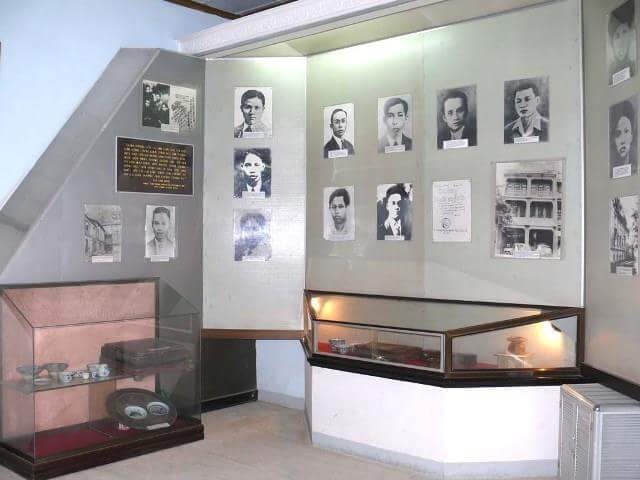
In July 1926, Tran Phu was sent by the Hung Nam Association (another name of the Phuc Viet Association, in 1928, the Association changed its name to Tan Viet Party) to Guangzhou, China to attend a special political class trained by leader Nguyen Ai Quoc. That was an important turning point in the revolutionary activities of comrade Tran Phu, from patriotism, he came to communism.
From 1927 to early 1930,Comrade Tran Phustudied at the Oriental University in Moscow (Soviet Union). Thanks to his good achievements in the years of studying and researching Marxist-Leninist theory, especially exchanging with fraternal communist parties on national and colonial issues, comrade Tran Phu was sent back to the country by leader Nguyen Ai Quoc to work and build a revolutionary movement.
After only a short time, comrade Tran Phu was added to the provisional Central Executive Committee and was assigned the extremely important responsibility of writing the draft Political Platform of the Party. The Political Platform was drafted in the light of the Resolution of the 6th Congress of the Communist International in 1928, and at the same time supplemented by the results of a survey of the practical revolutionary struggle in Vietnam.
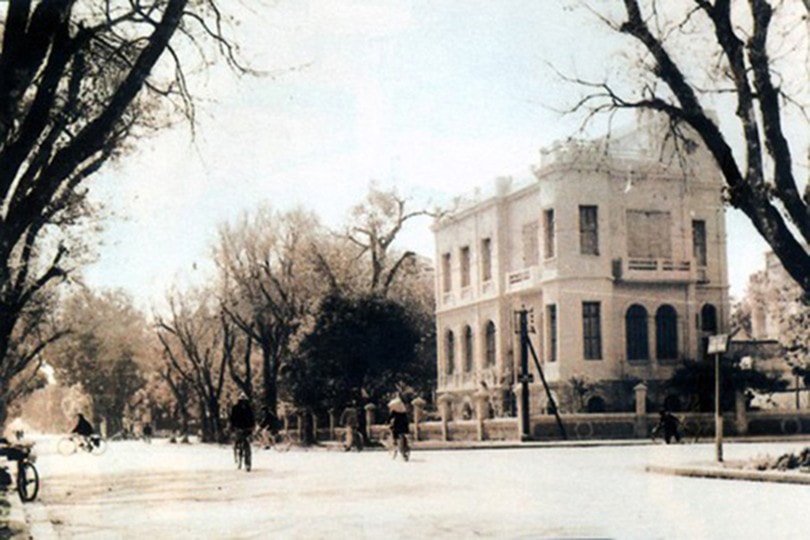
In October 1930, the first plenary meeting of the Central Executive Committee held in Kowloon - Hong Kong, China approved the famous Political Platform drafted by comrade Tran Phu. This is an important document of the Party, applying the principles of Marxism - Leninism on national and colonial issues and the basic arguments presented in"Brief Platform"and“Brief Strategy”of leader Nguyen Ai Quoc. Also at this Conference, comrade Tran Phu was elected as the first General Secretary of the Party. Under the direct leadership of comrade Tran Phu, the revolutionary movement throughout the country developed strongly, culminating in the Nghe Tinh Soviet.
The Nghe Tinh Soviet was the peak of the revolutionary movement in 1930-1931 in our country, taking place widely in the two provinces of Nghe An and Ha Tinh. The movement was opened by a demonstration to celebrate International Labor Day on May 1, 1930 by workers in Vinh-Ben Thuy and farmers in Hung Nguyen, Nghi Loc, and Thanh Chuong districts. On August 1, 1930, more than 500 farmers in Can Loc district demonstrated, holding red flags and banners, and marched into the district office to make demands. On September 12, 1930, more than 8,000 farmers in Hung Nguyen and Nam Dan districts demonstrated and were bombed by French colonialists, killing 217 people and injuring 125 others. The Nghe Tinh Soviet movement not only resonated with the people of the whole country, but also with peace-loving people around the world, because of the bloody repression of the French colonialists and the steadfast, indomitable fighting spirit of the soldiers.
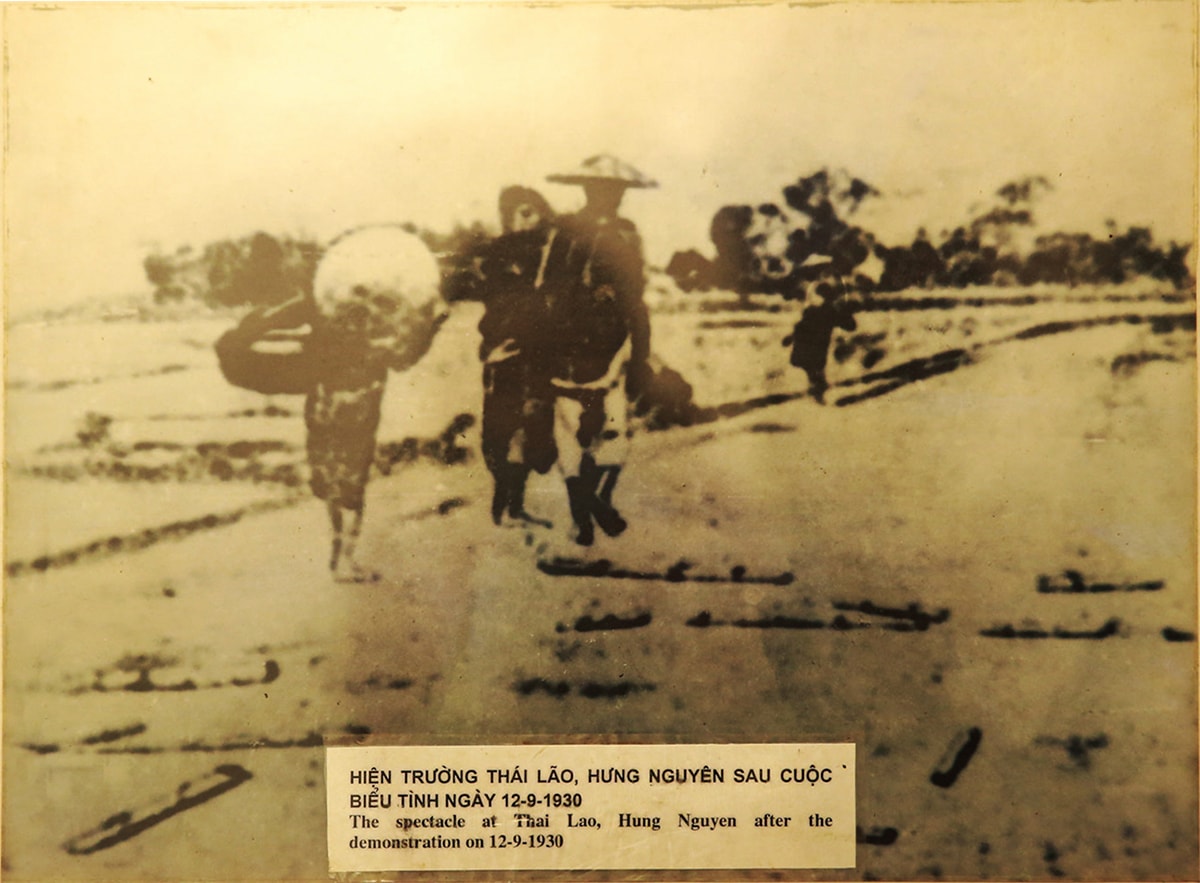
Under the resounding influence of the Nghe Tinh Soviet movement, the Party's prestige was enhanced and recognized by the Communist International. On April 11, 1931, the Communist International issued an important Resolution: "The Indochinese Communist Party, which has long been a branch of the French Communist Party, is now recognized as an independent branch of the Communist International." Since then, our Party has stood shoulder to shoulder with fraternal Parties in raising the flag of Marxism-Leninism, leading the revolution until today.
While our country's revolutionary movement was making new developments, panicking beforeindomitable spiritTran Phu, the enemy had secret agents follow and capture him at the Party's document printing facility in Saigon on April 18, 1931. They took him to the Big Prison, Saigon and used all means of torture, seduction, and bribery but still could not shake the iron will of the communist Tran Phu. Here, he continued to seek to discuss with his comrades about the domestic and international situation and the tasks of the Vietnamese revolution, proposing measures to fight against opportunistic, surrendering, and traitorous elements in the revolutionary forces.
The brutal prison regime had exhausted comrade Tran Phu's health. On September 6, 1931, he sacrificed himself at Cho Quan Hospital, in the arms of his comrades, at the age of 27. In his final moments, he still tried to use all his remaining strength to tell his fellow fighters: "From now on, I only hope that you will maintain your fighting spirit." Comrade Tran Phu's words were like a trumpet call, urging millions of hearts of his descendants to bravely charge forward in the struggle for national liberation. And today, in the development conditions of our country, with the impact of the negative side of the market economy and foreign cultural flows, the saying "keep up the fighting spirit" of comrade Tran Phu still has its original value and has great influence, reminding every cadre and party member to always maintain their ideological stance, steadfast on the path to socialism, the path that leader Nguyen Ai Quoc and his excellent students have outlined.
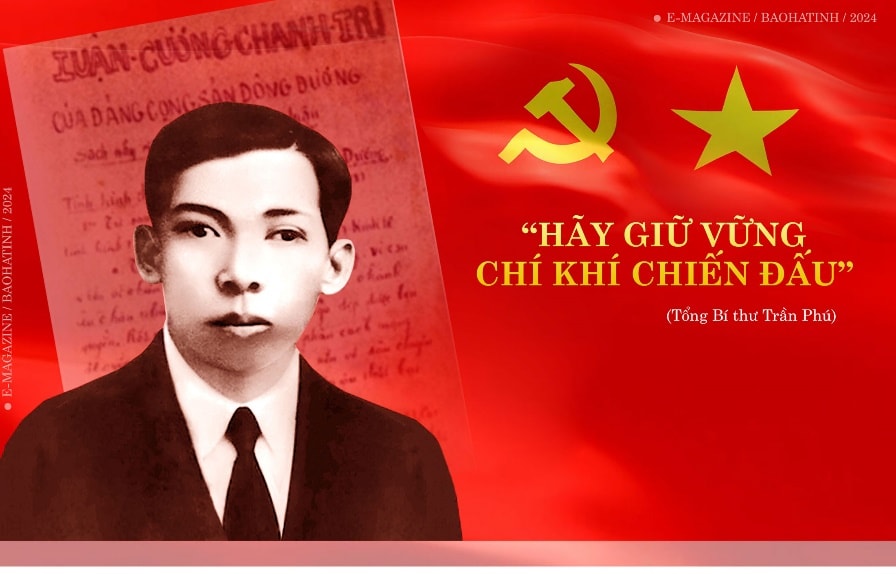
The Nghe Tinh Soviet was the first rehearsal of the Party in which comrade Tran Phu was the eternal highest leader. Although his working life was not long, comrade Tran Phu made great and important contributions to the revolutionary cause of the Party during the most vibrant and fierce period of 1930-1931. The name of comrade Tran Phu is closely associated with the Nghe Tinh Soviet, like a sacred flame that never goes out in the hearts of the Vietnamese people and international friends.

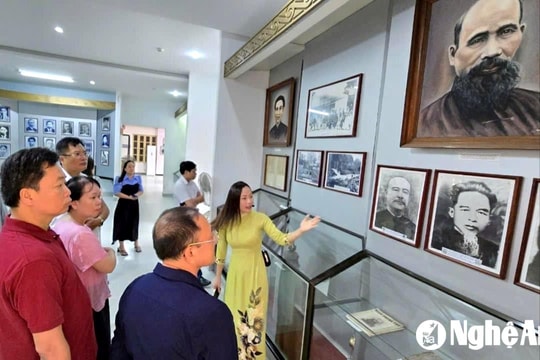
.jpg)
